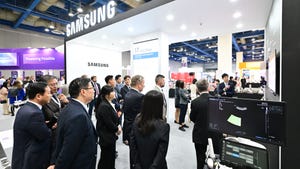TDC Upgrades to Gigabit Broadband With Huawei
Huawei upgrades TDC's coaxial network so that it can deliver broadband speeds of up to 1 Gbit/s.
January 27, 2016
LONDON -- Huawei, a leading global ICT solutions provider, has today announced that it is partnering with TDC Group (Tele Danmark Communications), the largest multi-service operator (MSO) in Denmark to upgrade TDC's coaxial network so that it can deliver broadband speeds of up to 1 gbps. The upgrade will be launched this summer and is scheduled for completion by the end of 2017. This will make Denmark the first country to upgrade an entire cable network to "Giga COAX" offering super-speed connectivity over cable networks.
The D3.1-compliant architecture involves network-wide end points, optical nodes, amplifiers, passive splitters, and corresponding engineering services, to provide ground-breaking speeds and connectivity. 1 gbps equates to downloading a entire HD movie (14 GB) in less than 2 minutes.
TDC Group, as a global leading MSO, is continuously innovating communication technologies and deployed the first D3.0 network in Europe.
The CEO of TDC Group, Pernille Erenbjerg said, "It is the most ambitious and comprehensive upgrades we have ever made in our cable network and at the same time it is one of the largest investments in digital infrastructure we have seen in Denmark. We are opening a high-way for digital entertainment media where only the imagination sets the limits and not the speed.
“We are opening a super highway of digital entertainment services, where the sky – not the speed – is the limit. Already before the end of 2017, half of all Danish households will have access to 1 Gbps speeds – 10 times faster than the political objectives for the year 2020.”
Zha Jun, President of Huawei’s Fixed Network Product Line, said, "Although the D3.1 industry chain is in its infancy at present, Huawei has been strategically investing its resources in this field ever since 2012. The partnership with TDC demonstrates the innovation capability and achievements of Huawei in the cable and wired broadband domain. It is also a key step of Huawei and TDC in promoting fixed network modernization. Huawei's cooperation with TDC and other industry players to build industry-leading Giga coax networks will greatly promote DOCSIS 3.1 commercialization worldwide and help establish a mature industry ecosystem."
As broadband traffic grows almost 50% each year, MSOs need to upgrade their coaxial networks to the gigabit level in order to offer IP-based and customized video services and deal with competition from FTTH. D3.1 adopts the advanced OFDM modulation mode and improves data transmission capability by 50% compared with that of D3.0. With D3.1, one coaxial cable can provide a maximum bandwidth of 2 Gbit/s uplink and 10 Gbit/s downlink. MSOs can reuse existing coaxial line resources to quickly deploy future-oriented next-generation D3.1 networks for gigabit service offerings and a competitive power against FTTH.
The Huawei distributed D3.1 D-CCAP solution can save a large number of analog components and optical fibers, facilitating network capacity expansion. Deployment of D-CCAP devices at optical nodes enables flexible and more reliable capacity expansion. In addition, D-CCAP and FTTH can be deployed on a unified platform.
With accumulated technological innovation in OFDM, Huawei plays a leading role in D3.1 standards formulation and technology development. Huawei's D3.1 D-CCAP is the only solution that supports uplink and downlink interoperation in tests conducted by CableLabs. The solution digitizes office equipment rooms to reduce the number of devices and required space by more than 80%. The distributed architecture adopted by the solution achieves digitization of optical fibers and moves signal modulation nodes closer to users for a higher SNR, in this way, a higher order modulation can be implemented for more users.
Huawei Technologies Co. Ltd.
Read more about:
EuropeYou May Also Like










